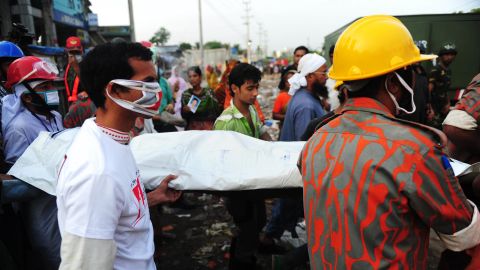
“An ounce of prevention is worth a pound of cure.”
~Benjamin Franklin, 18th. century American diplomat, scientist, inventor and political philosopher.
By Sabria Chowdhury Balland 1 July 2022
On 24 April, 2013, the nine storied Rana Plaza building outside of Dhaka, housing five garment factories, a bank and several shops, collapsed. At least 1,132 people were killed in this tragedy, while at least 2,500 people were injured. This tragedy is described as the worst ever industrial incident to hit the garment industry.
This accident was waiting to happen: structural cracks had been discovered in the building the day before, causing the shops and the bank on the ground floor to closed immediately. However, the management of the five garments factories on the upper floors obliged their workers to continue working.
The collapse of Rana Plaza exposed the deep, darks secrets of what occurs behind the scenes of the global fashion industry, shining a spotlight on worker’s safety issues in Bangladesh.
Just five months prior to the Rana Plaza tragedy, at least 112 workers were killed due to a fire in the Tazneen Fashion Factory outside of Dhaka. In 2012, 117 people were killed in a garment factory due to fire. There are unfortunately many more such incidents.
These are some of the worst industrial accidents on record to date, waking the world, particularly the Western countries, to the dismal realities of the extremely poor, unsafe and unsanitary conditions in which the workers who produce their clothes work in. Most of the workers are women or girls, earning some of the lowest wages in the world and risking their lives to support a ready made garments (RMG) industry for which Bangladesh, according to the Export Promotion Bureau (EPB) earned $35.81 billion in 2021.
The International Labor Organization (ILO), a United Nations agency, states that since the collapse of Rana Plaza in 2013, it has continued to work closely with the government of Bangladesh, employers’ and workers’ organizations and development partners to improve the working conditions of workers in all industries.
However, in a country where the rule of law is loosely an option rather than the rules set in stone for which there are substantial penalties if broken, standardizing all factories and work places to international safety norms is not only a challenge, it is almost an impossibility. Corruption exists in every tier and layer of society. It is rampant in Bangladesh, thus workers’ safety rules, such as traffic rules or any others, are very easily circumvented, leading to a complete lack of protection in case of an accident.
Ali Ahmed Khan, the former chief of the fire department, stated that Bangladesh now needs to focus on the small and medium-sized industries in terms of security and safety if it wants to stop a recurrence of deadly fires. He added that industries such as leather goods, pharmaceuticals and plastic goods were stepping up exports but were not fully compliant with fire-safety rules and that “unless there is a compulsion, people will not comply.”
This is essentially the heart of the problem. Compliance, meticulous execution of the rule of law, appropriate penalties for noncompliance, etc. give way to corruption and become difficult challenges to overcome.
This has been witnessed yet again on June 4, 2022 at a container facility in Chittagong in southeastern Bangladesh. A massive fire triggering multiple explosions broke out at a container depot killing at least 49 people and injuring 300.
Barrister Jyotirmoy Barua, a legal expert who has investigated other major fires in Bangladesh believes that the explosions at the container depot intensified due to lack of information and transparency. Firefighters were not told that there containers containing the chemical hydrogen peroxide and by spraying water on it, the situation was aggravated. According to the barrister, the lethal patterns of such incidents indicates “that the owners were already aware of what could happen if a fire breaks out in their factories.” The barrister goes in to say, “The owners of these industries are so powerful that many forces come together to save them after an incident. They hardly face any justice due to their influence over political and other sectors of the country”.
If these “accidents” are classified as “crimes”, it is noteworthy that the perpetrators remain unpunished due to corruption, lax enforcement of the law and a culture of impunity. Hence, the vicious cycle continues.
According to the Bangladesh Home Minister, Assaduzzaman Khan, “An investigation was launched to determine the reason behind the blaze,
(in Chittagong). Those responsible for the accident will be brought to justice.”
These words have been heard time and time again and if there was any seriousness and validity to them, fatal incidents would not be occurring in Bangladesh time and time again and workers rights and safety would be safeguarded.
There have been many lessons to learn from these disasters but unfortunately, it is evident that there is a great deal to still learn and implement with regards to workplace safety rules and regulations.
Until the cycle of corruption and impunity is unbroken in Bangladesh amongst factory owners, building inspectors and law enforcement, the innocent workers will remain sacrificial lambs for the sake of greed.

